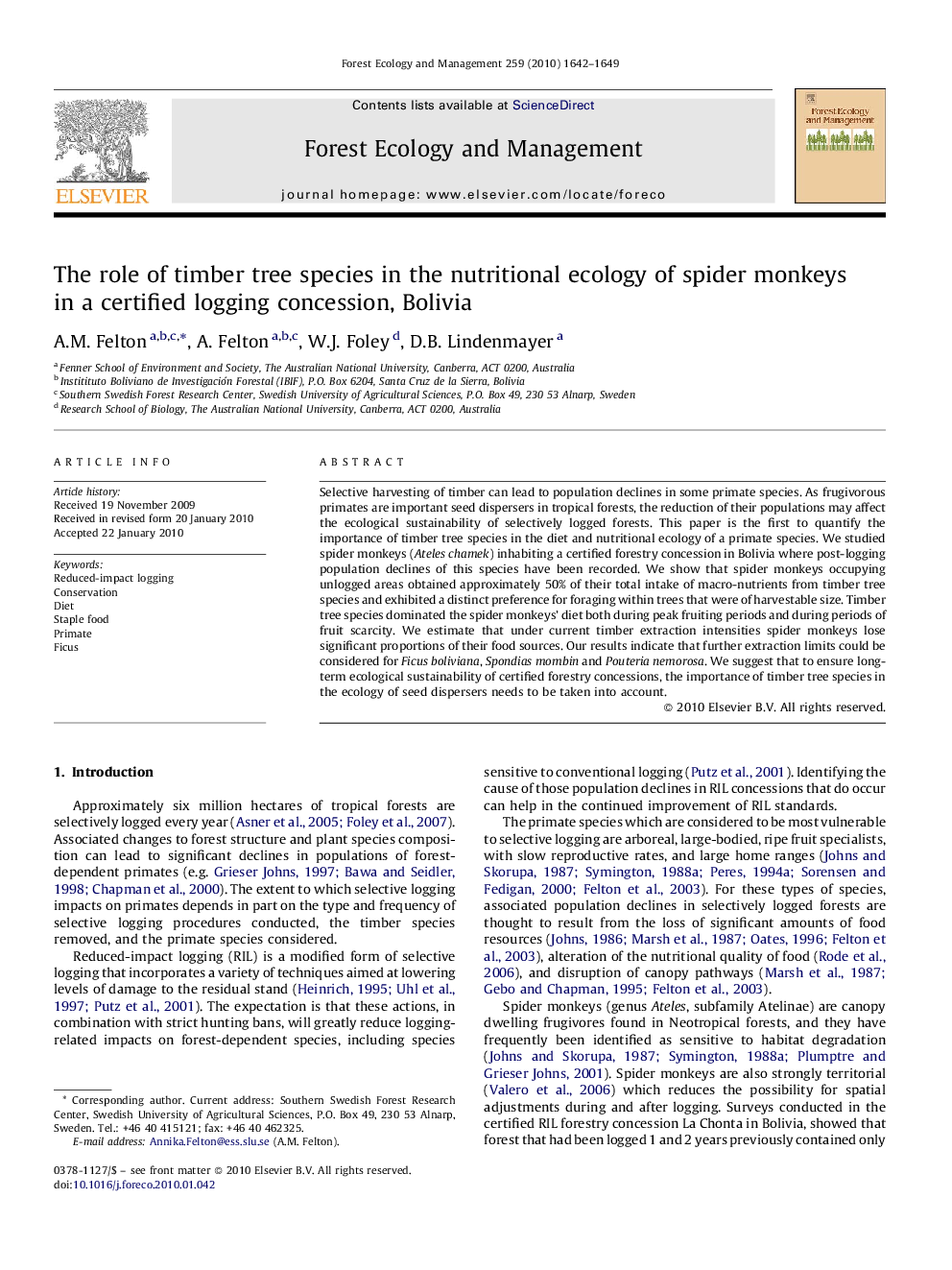| Article ID | Journal | Published Year | Pages | File Type |
|---|---|---|---|---|
| 88513 | Forest Ecology and Management | 2010 | 8 Pages |
Selective harvesting of timber can lead to population declines in some primate species. As frugivorous primates are important seed dispersers in tropical forests, the reduction of their populations may affect the ecological sustainability of selectively logged forests. This paper is the first to quantify the importance of timber tree species in the diet and nutritional ecology of a primate species. We studied spider monkeys (Ateles chamek) inhabiting a certified forestry concession in Bolivia where post-logging population declines of this species have been recorded. We show that spider monkeys occupying unlogged areas obtained approximately 50% of their total intake of macro-nutrients from timber tree species and exhibited a distinct preference for foraging within trees that were of harvestable size. Timber tree species dominated the spider monkeys’ diet both during peak fruiting periods and during periods of fruit scarcity. We estimate that under current timber extraction intensities spider monkeys lose significant proportions of their food sources. Our results indicate that further extraction limits could be considered for Ficus boliviana, Spondias mombin and Pouteria nemorosa. We suggest that to ensure long-term ecological sustainability of certified forestry concessions, the importance of timber tree species in the ecology of seed dispersers needs to be taken into account.
